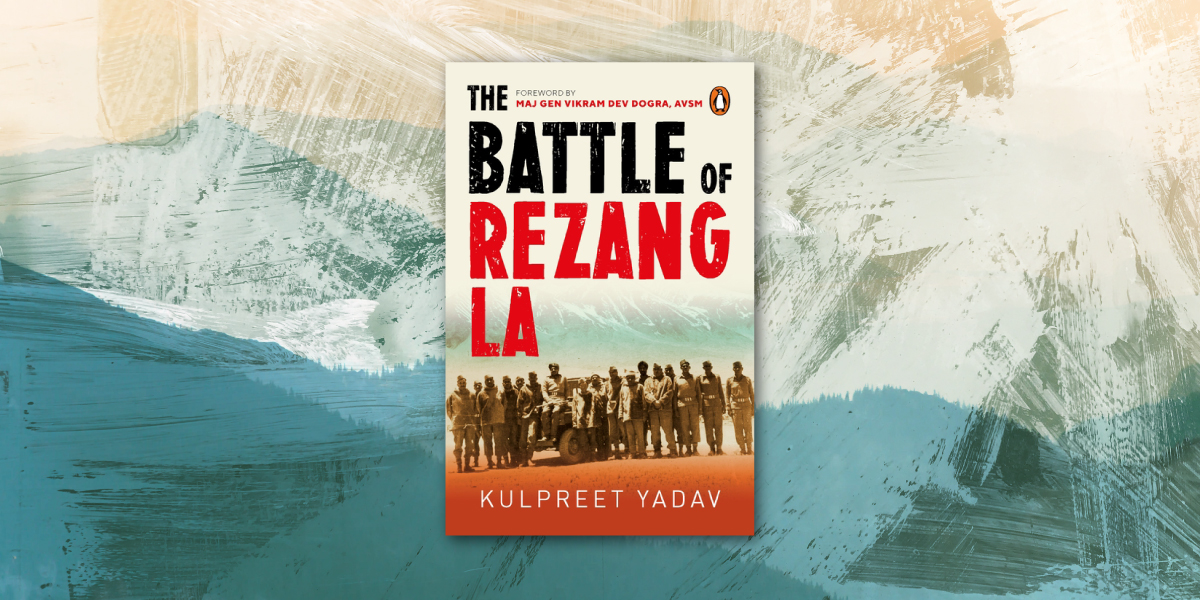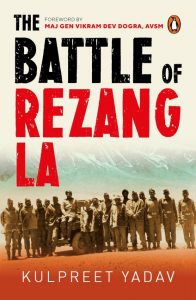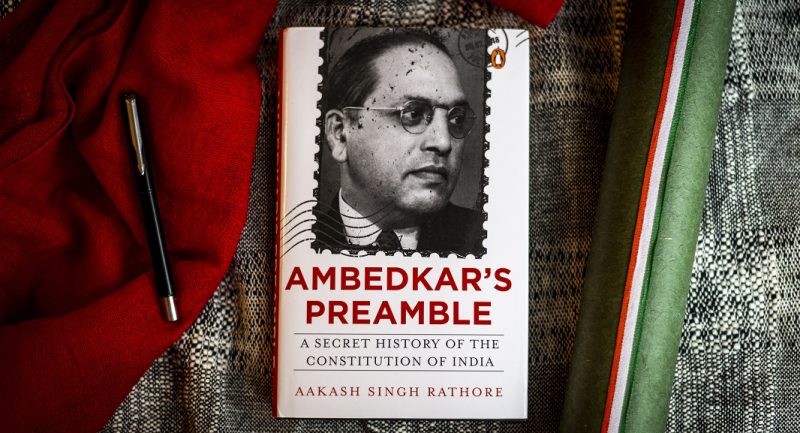
On 18 November 1962, the Charlie Company of the 13 Kumaon Battalion, Kumaon Regiment, fought a Chinese attack at Rezang La Pass in Ladakh, India. The company comprised 120 soldiers and was led by Maj. Shaitan Singh. Of these soldiers, 110 were martyred in the attack.
The Indian search party, which visited the battlefield on 10 February 1963, made a startling discovery-the frozen bodies of the men who had died were still holding guns in their hands, having taken bullets on their chests. The valour of the Charlie Company not only successfully stopped China’s advance, but it also resulted in the Chushul airport being saved, thereby preventing a possible Chinese occupation of the entire Ladakh region in 1962.
The battle, although rarely mentioned or recounted in books, has many lessons to offer to the willing listener. After all, those who do not learn from history, continue to repeat their mistakes.

The Battle of Rezang La
Kulpreet Yadav
1. A nation’s internal issues can quickly make it vulnerable to outside attack.
China attacked India on 20 October 1962. Six office bearers, who were holding the top positions of decision-making in New Delhi, were not present at their offices in the final few months before the attack. Who are these and where were they? Let’s start from the top. Prime Minister Jawaharlal Nehru left New Delhi on 8 September 1962 to attend the Commonwealth Prime Ministers’ Conference and returned on 2 October 1962, but once again departed on 12 October 1962 for Colombo from where he returned only on 16 October 1962, i.e., just four days before the war. The defence minister, Krishna Menon, was in New York from 17 September 1962 to 30 September 1962 to attend the UN General Assembly meeting. Lt Gen. B.M. Kaul, the Chief of General Staff, was on holiday in Kashmir till 2 October 1962, and the Director of Military Operations (DMO), Brig. D.K. Palit, was away on a cruise on the naval aircraft carrier Vikrant. This underlines the government’s apathy towards nation’s security resulting from a complete intelligence failure.
Jawaharlal Nehru didn’t trust Krishna Menon when it came to China due to the latter’s leftist leanings and therefore, the prime minister had ordered certain matters to be brought up directly to him. Lt Gen. B.M. Kaul and Krishna Menon were not on talking terms as explained by Brig. D.K. Palit in his memoirs. Gen. P.N. Thapar was in awe of Lt Gen. B.M. Kaul due to the latter’s proximity to Jawaharlal Nehru, who was also related to Gen. Kaul. These interpersonal issues further compounded the organizational structure at the top.
2. A nation should proactively strengthen its security forces to prepare for any untoward strike on its sovereignty, while simultaneously aiming to resolve conflicts peacefully first.
It’s a well-known fact that Prime Minister Jawaharlal Nehru abhorred violence. But the fact that he allowed his personal choice to eclipse the security needs of the nation by downsizing the army after 1947 was the real reason why India had to face humiliation at the hands of the Chinese in 1962. Nehru was indeed one of the finest global leaders of the time and the principal architect of the nation that Indians even today owe a lot to, but his complete dislike for the army can be deduced from this anecdote from the biography of Maj. Gen. A.A. Rudra written by Maj. Gen. D.K. Palit: ‘Shortly after Independence, General (Robert) Lockhart as the army chief took a strategic plan to the prime minister, asking for a government directive on the defence policy. He came back to Jick’s (Rudra’s) office shell- shocked. When asked what happened, he replied, the PM took one look at my paper and blew his top. “Rubbish! Total rubbish!” he shouted. “We don’t need a defence plan. Our policy is ahimsa (non-violence). We foresee no military threats. Scrap the army! The police are good enough to meet our security needs.”
3. It’s critical for a nation to rightly gauge the enemy’s intention and the scope of their preparation in order to win the war.
The intensity of the shelling and the diversity of the weapons used by the Chinese were an indication of the determination to take the position at any cost. To destroy bunkers, they wheelbarrowed anti-tank guns to the flanks of our (Indian) positions and fired them massively. The four-feet-deep craters found in solid rock around company headquarters were a clear indication that they even used a certain number of big rockets. The shelling was indeed a spectacular display of the Chinese at night. An officer watched it from 4 miles away. ‘I saw missiles,’ he later said, ‘with flaming red tails falling on Rezang La. The spectacle was so weird, we thought the entire Rezang La was on fire.’ Another soldier at a post 4 miles south reported, ‘The explosions were so great that the walls of our cookhouse collapsed.’
4. A strong and dynamic intelligence unit is key to ensuring a nation-state’s welfare and safety.
On 21 October 1962, when an Indian transport aircraft flying over Ladakh reported a 2-mile-long column of Chinese military vehicles heading towards Chushul along the road from Rudok in Tibet, alarm bells started to ring in the army headquarters and the defence ministry. Until then, the Indian intelligence didn’t have any idea about the military build-up on the Chinese side of the Ladakh border. This was going to cost India heavily. The Indians were ignorant of the aggressive road-building activity of the Chinese that had connected all their border posts to their support bases in the deep. Due to this, the PLA’s mobility of troops, artillery and stores was swift. Compared to this, the Indians in Ladakh had just completed the road that connected Srinagar to Leh. A jeepable road that connected Leh with Chushul was also made weeks before the Chinese attacked India as we have seen before. All other thirty-six forward Indian posts were still connected by mule tracks, which took days to reach and had obvious load-carrying restrictions.
*
In The Battle of Rezang La, Kulpreet Yadav evocatively narrates the untold story of the soldiers of the Charlie Company who valiantly fought the Chinese till their last breath.








